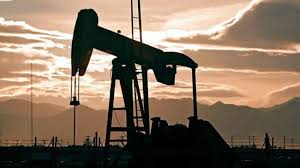LAWS designed to protect the environment could open the door to a new danger to wildlife – fracking.
Fracking is the controversial method of extracting shale gas by creating fractures in the rocks and injecting chemicals.
The drilling process has not yet been used in Spain, but has already caused uproar in the UK and has been banned in other countries.
The Spanish government has approved a nationwide bill designed to simplify and streamline environmental policy.
The new law has created a so-called conservation bank, which will help protect endangered species.
Essentially, it creates a compensatory system where some development can happen, but not at the cost of species or their habitat.
Developers pay into a bank that conserves and preserves the species, while infrastructure developers purchase credits from a land conservation bank to ensure there is no net-loss of species from their activities and to offset the unavoidable impacts of their development.
However, worried environmentalists have raised concerns about other aspects of the new legislation, which they fear could open the door to fracking.
The government said it would evaluate the controversial technology – which has already been banned in France and Bulgaria.
Lawmakers in the northern region of Cantabria had unanimously voted in April to ban fracking on environmental grounds – dashing the centre-right government´s hopes to develop a region believed to be rich in shale gas.
Early estimates indicate Spain has large shale gas reserves, but environmentalists are concerned about the technology, which involves injecting water and chemicals at high pressure into underground rock formations.




Spain barely has enough water for golf-courses, let alone the huge amounts needed for fracking. As for the “land conservation bank”? Just a code phrase for bribery to local officials.